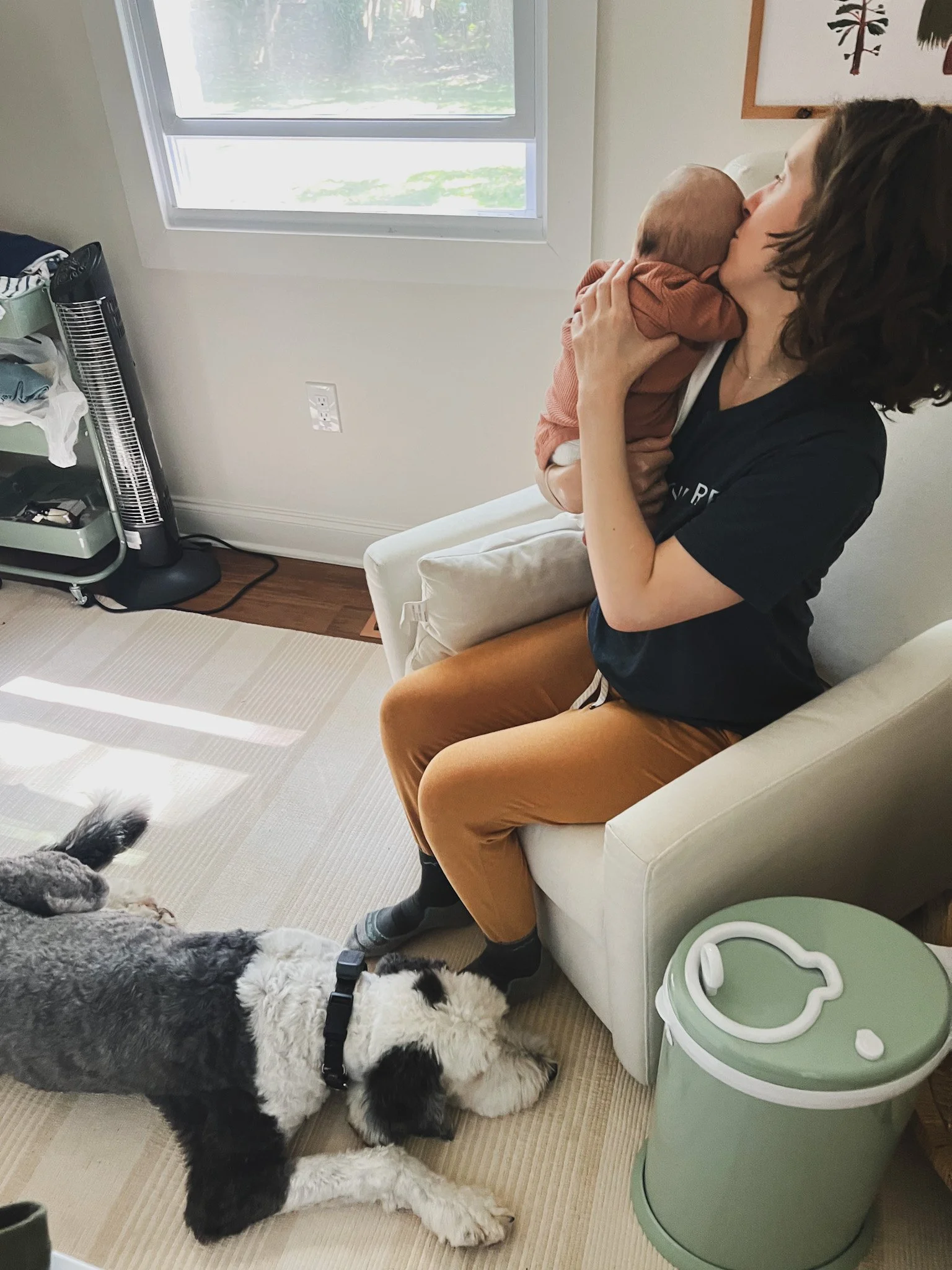It was 4:30pm on a Tuesday afternoon and my dog, Otis, delivered one of his stuffed toys directly onto my lap and looked up at me with expectant eyes. He’s done a version of this hundreds if not thousands of times before, and I can remember smiling and tossing him the toy. But this time, I had to close my eyes and take a deep breath to avoid screaming. I felt annoyed. And then very guilty.
The next morning, I walked both of my dogs in the woods by my house - just like I’d done every morning for years. Every time they stopped to sniff … there was that feeling of annoyance again. When we approached a tree on the trail and they went left when I went right, I felt myself wanting to scream.
Author Christie Catan (above with her son and dog, Otis), is a Certified Professional Dog Trainer, Knowledge Assessed and the co-founder of Tails of Connection.
What the hell was going on? Why were my dogs annoying me so much? Had my dogs suddenly become “annoying” and “needy”? I felt guilty as I remembered all the nights I’d laid my head on Otis’s shoulder and cried because it felt like my body couldn’t possibly hold all of the love I had for him.
Then somewhere from beneath the sleep deprived fog, I remembered: emotions track contingencies.
My dogs were not “bad” or “annoying” or “too needy.” Conditions had changed.
I had gone from a life where I controlled so much of my own time (and had a fair bit of it) and often had the flexibility to stop and play with my dogs when they asked. Now I had a baby who couldn’t eat or sleep without me, and my time was not my own. Suddenly I found myself being pulled in so many directions at once while desperately trying to be present for the beings in my life whom I love so much.
Now my dogs doing things they had always done signaled something entirely different for me. Not because they were different but because the rest of my conditions had changed.
The answer wasn’t that my dogs needed to stop bringing me toys or sniffing on walks. The answer was that I needed to find some ways to get a bit more support.
I look back now and feel grateful that the annoyance I felt was so damn strong. As Dr. Israel Goldiamond (a professor emeritus in psychiatry and psychology and a pioneer in the field of behavioral psychology … much of his work influences dog training today) explained, that strong emotion helped me identify what contingencies were in play … which allowed me to shift some things in my environment.
I am still very much learning how to show up in this new role in my life while still honoring the ones I had pre-baby. But the good news is that I know I am learning. And I have my emotions as little flags that will help me identify what's going on in the environment in case I ever get too overwhelmed to pay attention to myself.
To my dogs: I love you beyond words. I am the mother I am today in large part because of you. I am so grateful that you are with me on this journey. Thank you for your patience. Please never stop asking me to play or telling me to slow down on a walk and look around. I need those reminders.


